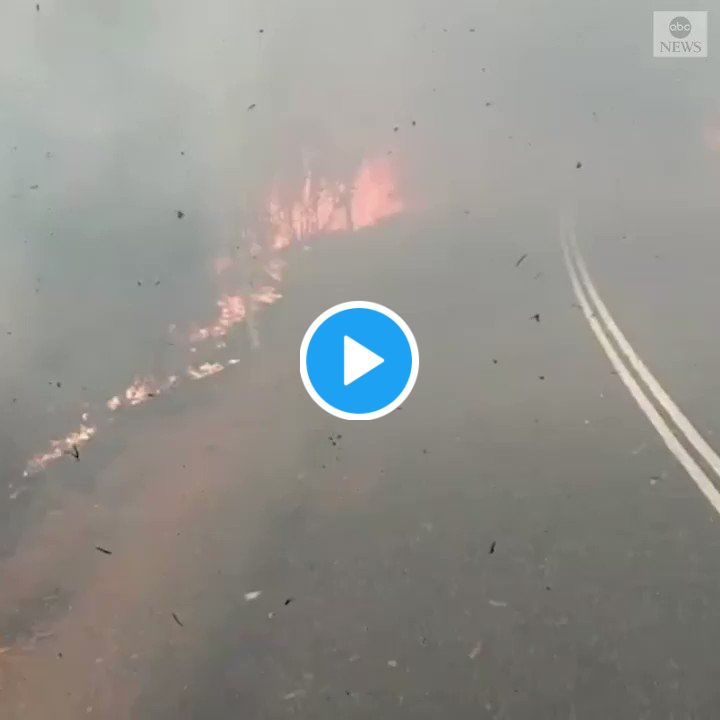Learning by Proxy | Shooting businesses with ESG
Business activism used to be about worker rights. Now the troika of ESG is after them!
In high school science lab, there used to be an experiment to show the convection currents in the water. The water would be gently heated and a crystal of potassium permanganate was dropped into the water (check on YouTube if you have not done it). As the crystal dissolved, one can watch the purple stream move up and then down as it cooled at the top.
If that same water was boiling, it would not be possible to make out anything. You would drop the grain and it would get tossed around. Depending on the intensity of the boil, you will soon lose it.
ESG
Something similar happening with the climate on our planet. Climate would follow a predictable pattern moving between seasons. From Summer to winter and back to summer. All of it would take place predictably at the same time of the year.
Instead, on the one hand, you have the southern states of the US buried under several feet of snow
On the other hand, East of Perth, wildfires are wreaking havoc!
For those living in Perth, this created a strange predicament.
Just days after residents of Perth, Australia’s fourth-largest city, were ordered to stay in because of the coronavirus, some were forced to flee their homes on Tuesday as a ferocious wildfire bore down on the city’s outskirts.
The blaze northeast of Perth, which began on Monday and was fueled by hot, dry and windy conditions, was out of control by about 2 a.m. on Tuesday, officials said. Residents described a confused scramble in the middle of the night, as they were unsure where they were supposed to go in light of the lockdown rules.
Source: New York Times
Sounds like something Hitler would do. Ask people to stay at home and send fire their way!
This is not new, I had written a similar post on the topic last year as well. The reverse was true then. Australia was buried in snow and the Western United States was up in flames.
Meanwhile, in India,
The floods washed away two dams. (they were not glacial burst) This is very damaging for the region because development has taken place with the dams in place and they will not be replaced overnight. As summer comes and the flow of the river increases, many houses might get washed away. Also, the power output in the state will take a hit.
The greatest succour might arrive from unexpected quarters. Not government, not NGOs, definitely not philanthropists. Hedge Funds. Yes, those very guys that the retail investors investing in GameStop wanted to sink. Turns out they made a lot of money on the GameStop trade, but that is for another post.
First, what is ESG?
Environmental, social, and governance (ESG) criteria are a set of standards for a company’s operations that socially conscious investors use to screen potential investments. Environmental criteria consider how a company performs as a steward of nature. Social criteria examine how it manages relationships with employees, suppliers, customers, and the communities where it operates. Governance deals with a company’s leadership, executive pay, audits, internal controls, and shareholder rights.
Source: Investopedia
Next, Why ESG?
At a broad level, the story was consistent: Over the past 1, 3 and 5 years, ESG stock and allocation fund strategies lost less money than non-ESG funds during market declines and displayed less volatility. Among 11 Morningstar Categories, the average down capture for ESG funds through the year ended March 31 was nearly 12% better than category averages.
Source: Morning Star
This became even more painfully apparent during 2020. Most of the companies that followed ESG were better performers than those that did not. This caused many at the boards of various hedge funds to scratch their heads and rethink strategies.
Hedge Funds differ from mutual funds and others because they are much larger in terms of the corpus. Also, they are not accessible to individual investors and only to accredited investors and other funds. Many of the pension funds and other such entities entrust their monies to hedge funds rather than manage the investment themselves.
Just like if a mutual fund performs well, your agent sends you a brochure; brochures of these ESG funds that have been kicking ass in 2020 must have reached the pension funds as well. So philosophies are changing.
BlackRock is a New York-based hedge fund, and it is the largest in the world. How large? Their assets under management are to the tune of USD 8.67 Trillion. That is over 3 times India’s GDP. Last month BlackRock issued an ultimatum to all the companies whose shares it owns.
The world’s largest asset manager is pushing companies to disclose how they will survive in a world of net-zero greenhouse gas emissions.
Because better sustainability disclosures are in companies’ as well as investors’ own interests, I urge companies to move quickly to issue them rather than waiting for regulators to impose them," BlackRock CEO Larry Fink said Tuesday in his annual letter to CEOs.
The corporate world is waking up to the fact that so-called ESG factors — environmental, social and governance metrics — pose financial risk, and companies that don’t adapt will be left behind.
Source: CNBC
Not just the performance of ESG companies, but also the raft of legislative changes that they foresee in the wake of the new Biden administration is causing this change of heart.
A fund like BlackRock can change the fortunes of companies if it decides not to invest in them. Also, given the size of their asset portfolio; if they announce, they are going to avoid investing in a certain company, other hedge funds would get cautious as well.
While COVID-19 brought our lives to a halt last year, it is nothing when compared to what the boiling earth can unleash upon us. One wildfire can take several cities and destroy properties. One mega-sized hurricane can leave a path of destruction which can take years to fix. Other weather events can eat away at the economy from within. Like a snowstorm brings everything to a halt in a city.
“Climate risk is investment risk,” concluded BlackRock CEO Larry Fink in his annual letter to chief executives this month. With climate change rewriting core assumptions in modern finance, he argued, trillions of dollars are at stake. “Sooner than most anticipate, there will be a significant reallocation of capital,” Fink wrote. “We believe that sustainable investing is the strongest foundation for client portfolios going forward.” [...]
This tracks the superior market performance of ESG investments across the board. Funds screening out bad actors for environment, social, and governance issues saw four times more cash flow into them in 2020 relative to the same period the previous year. Many outperformed the S&P 500.
Source: Quartz
Not only BlackRock, other fund managers are also coming after the companies to increase transparency and to force them to act.
A billionaire hedge-fund manager is bankrolling an unprecedented campaign to force dozens of the world’s largest companies to publish carbon-emission reduction plans and put them up for shareholder vote.
Frustrated by the pace at which corporations are cutting emissions, Christopher Hohn is backing a global effort to speed things up. He is working with nonprofit groups and investor organizations to get at least 100 of the companies in the S&P 500 stock index to adopt the initiative by the end of 2022—voluntarily if possible and through proxy battles at annual shareholder meetings if not.
Source: Wall Street Journal
Therefore, it came as no surprise when one of the largest car manufacturers in America pledged to end the sale of all gasoline vehicles by 2035. GM announced that it would ensure that none of the cars coming out of its factory is powered by Gasoline or Diesel.
GM said that tailpipe emissions account for 75% of its carbon footprint. The new pledge comes as the automaker has been speeding up rollout of new EVs, with a number of models hitting showrooms in the next several years.
The company plans to offer 30 all-electric models by the mid-2020s and says it’s investing $27 billion over the next five years on electric and autonomous vehicle development.
Source: Axios
The annual convention of the high priests of plutocracy at Switzerland, which was held online this year, also saw major announcements.
Today, at the annual Davos gathering—taking place virtually this year—more than 60 global companies announced they have signed onto a commitment to follow this common set of ESG goals. The announcement will take place during a panel on Implementing Stakeholder Capitalism, featuring the WEF’s founder, Klaus Schwab, Salesforce CEO Marc Benioff, and Bank of America CEO Brian T. Moynihan, among others. In total, 61 companies across industries and geographies have signed onto the pledge. Others include Siemens, PayPal, Heineken, Deloitte, Sony, Unilever, Dell, and Royal Dutch Shell.
Source: Fast Company
Even India’s Reliance and Mahindra Group joined the pledge.
Much like taxes, many of these metrics are going to be heavily massaged. Every possible PR spin will be employed to make the companies look good.
That said, something is better than nothing. The first step towards coming up with a solution is acknowledgement. This seems like that.
Oil companies are ramping up their alternate energy portfolios. So much so that there is a bidding war unfolding!
In the UK, the oil companies BP and Total emerged as the two top victors in a bidding war for an area set aside for offshore wind farm development. The two companies will each pay more than $1 billion to the UK to secure their claims, and plan to independently invest tens of billions of dollars building offshore wind turbines in the coming years.
Source: Quartz
All the oil companies have offshore drilling capabilities and infrastructure to work in deep water. They can easily leverage the same for offshore wind units. It would also certainly help keep them on the radar of the hedge funds that are prioritising ESG.
Another surprising development involved the Indian Supreme Court. Typically, if you were asked to estimate the value of a tree, it would be equated to the value of the lumber that the tree can generate. By this metric, a tree that is 100 years old could end up with a price that is not too different from a tree that is 25 years old.
The Supreme Court had set up a 5 member committee to evaluate the worth of a tree.
A tree’s monetary worth is its age multiplied by ₹74,500, a Supreme Court-appointed committee has submitted in a report, setting a guideline, for the first time in India, on the valuation of trees.
The five-member committee of experts added that a heritage tree with a lifespan of well over 100 years could be valued at more than ₹1 crore -- and that the monetary value of a project, for which hundreds of trees are cut, is sometimes far less than the economic and environmental worth of the felled trees.
The report was submitted before a Supreme Court bench, headed by Chief Justice of India (CJI) SA Bobde, that had asked the committee members in January 2020 to determine the economic value of trees, based on cost of oxygen they release, and other benefits to the environment.
Source: Hindustan Times
In other words, the price of a tree is USD 1000 per annum that it has lived. If we were to take this as a fair value, a hundred-year-old tree would be worth USD 100,000. Recently Tesla moved down 227 acres of forest land outside Berlin. Assuming an Acre can hold 250 trees and also assuming each tree was 25 years old, the value of the trees cut down would be USD 1.418 Billion. That would be more than the value of his plant!
When Tesla posts a profit, you know at what cost it came.
Petrostates
Petrostates refers to countries that depend heavily on petrol to finance their government. From the Middle East to South America, these countries are tightening their belts for the rough ride that lies ahead. After years of easy revenue, 2020 marked the year where they saw cratering income.
Now even that source of wealth is in jeopardy. A recent study by the Carbon Tracker Initiative, a nonprofit energy and financial think tank, found the 40 countries most reliant on fossil fuel income could see oil revenues fall by an average of 46%—a total of $9 trillion—over the next 20 years due to international initiatives to meet the Paris Agreement’s emission targets. Most of that pain will be borne by 19 countries home to 400 million people, about half of them in Nigeria and Angola.
Source: Quartz
While countries like Saudi Arabia made deals with America and shored up their finances, the same is not true for many of the South American and African countries. This could come as a blow to them as their economies grow.
On the other hand, this story of moving away from fossil fuels has been told for a long time now. Despite all actions, the consumption has gone in only one direction. Up.
Indian Space Full Stack
Developing any website involves developing the back-end (database and instruction) and the front-end (UI/UX - shit you see on the screen). A developer who can undertake both back-end and front-end development is called a full-stack developer.
Space business involves a launch vehicle and payload. The launch vehicle is the bus in which the payload (satellite) travels. India has been known for its space exploits and the achievements of ISRO, we have not had a private play in space at all. We have had several teams attempt to build and deploy payloads though and do it successfully.
A team of ex-ISRO engineers took it upon themselves to build India’s first privately owned space launch company. When I read it a couple of years ago, I made it a point to meet Pavan at Hyderabad. He exuded confidence and was certain they will make it.
Days after its collaboration with ISRO, Hyderabad-based space-tech startup Skyroot Aerospace has announced a partnership with Bellatrix Aerospace.
The partnership will allow Skyroot to use the Bengaluru headquartered startup’s orbital transfer vehicle (OTV) technology for its homegrown Vikram series of rockets, a statement said.
The transfer vehicle being built by Bellatrix would be integrated with the upper stage of Vikram rockets, enabling a more sophisticated system of satellite delivery, the statement said.
Source: TechCircle
This will be a full-stack Indian operation. An Indian launch vehicle, Indian payload!
SpaceX has grown by leaps and bounds because NASA was left castrated after the Space Shuttle Program was grounded in the first decade of this century and had to suffer the ignominy of depending on the Russians to send payloads to the International Space Station. The most premier space agency in the world had no spacecraft! NASA money helped kept that operation going.
For an Indian company to manage this without government alms is truly a respectable achievement.
When your luck is shot
In America, as Twitter started flagging Trump’s posts, his supporters started moving to Parler. Parler soon became a cesspool of right-wing conspiracies. It came to a peak when the rioters breached the Capitol on Jan 6th.
Subsequently, as the power equation in Washington was certain to change, the app was banned by Apple, Google and AWS. This put an end to the company.
Now, in India -
RESPONDING TO parallels being drawn between the microblogging platform Koo App — an India-made alternative of Twitter — and US-based alt-tech social networking site Parler, the startup’s co-founder and CEO, APRAMEYA RADHAKRISHNA, said Koo was an open platform and has people of all ideologies joining it. In an interview with PRANAV MUKUL, he also talked about the platform’s content moderation policy and the sudden surge in downloads it has witnessed after various Central government ministers and politicians promoted the app.
Source: Indian Express
Many of you may not remember, Aprameya was the co-founder of TaxiForSure. The company was forced to sell to Ola as they could not raise money in the aftermath of the Uber rape in Delhi back in 2015. It was a freak external circumstance which put paid to his efforts 5 years ago. Will his latest venture turn into the Parler of India?
Also
Mahua Moitra tearing into the BJP government in parliament
Since this edition is about ESG - Watch a whale trying to escape the shipping traffic. It is heartbreaking.
Ultimately, we will discover our Palaeolithic ancestors were right all along. Building homes with mud, with a modern twist.
You have come this far, so I assume you enjoyed reading this. Please do subscribe! (If you have not already)
Share your thought about the blog in the comments section. Also, if you have anything specific that you would like me to write about, please mention in the comments section. I would love to hear from you.
Also, follow me on Twitter @viveksrn to know when the edition drops.
Please do share this post with anyone who might like to read it.
What we think, we become ~ Buddha











